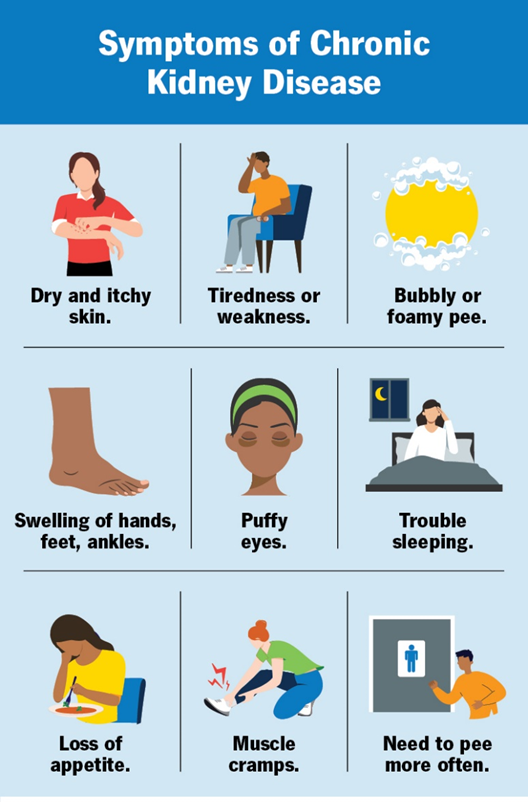A client with narcolepsy receives a new prescription for methylphenidate. Prior to administration of the medication, the nurse should review the medical record for which condition?
Hypercholesterolemia.
Hypertension.
Diabetes mellitus.
Bronchitis.
The Correct Answer is B
Choice A reason: Hypercholesterolemia, or high cholesterol, is not a primary concern when prescribing methylphenidate. While managing cholesterol levels is important for overall cardiovascular health, it does not directly interact with the administration of methylphenidate.
Choice B reason: Hypertension, or high blood pressure, is a critical condition to review before administering methylphenidate. Methylphenidate can increase blood pressure and heart rate, potentially exacerbating pre-existing hypertension. Monitoring and managing blood pressure is essential to prevent complications such as stroke or heart attack.

Choice C reason: Diabetes mellitus is important to manage, but it is not directly affected by methylphenidate. While some medications can influence blood sugar levels, methylphenidate primarily affects the central nervous system and cardiovascular system.
Choice D reason: Bronchitis, an inflammation of the bronchial tubes, is not a primary concern with methylphenidate use. Although respiratory conditions should be managed appropriately, they do not typically interact with the effects of methylphenidate.
Nursing Test Bank
Naxlex Comprehensive Predictor Exams
Related Questions
Correct Answer is C
Explanation
Choice A reason:
Calcium acetate is not used to lower potassium levels. Potassium levels in the blood are typically managed through dietary restrictions, medications like potassium binders, and dialysis in patients with CKD. The normal range for blood potassium levels is 3.5 to 5.2 mEq/L for adults.
Choice B reason:
Calcium acetate can increase calcium levels in the blood, not decrease them. It is important to monitor calcium levels to avoid hypercalcemia, which can lead to complications such as vascular calcification and cardiac issues. The normal range for blood calcium levels is 8.6 to 10.2 mg/dL.
Choice C reason:
Calcium acetate is used to lower phosphate levels in patients with CKD. It works by binding to dietary phosphate in the intestines, forming insoluble calcium phosphate that is excreted in the stool. This helps prevent hyperphosphatemia, a common issue in CKD patients. The normal range for blood phosphate levels is 2.5 to 4.5 mg/dL.

Choice D reason:
Calcium acetate does not directly affect blood pH levels. Blood pH is regulated by the kidneys and lungs, and the normal range is 7.35 to 7.45. While CKD can affect acid-base balance, calcium acetate’s primary role is to manage phosphate levels.
Correct Answer is B
Explanation
Choice A reason: Insulin glargine is a long-acting insulin used to manage blood glucose levels in patients with diabetes. It is not typically used for the acute management of severe hypoglycemia. Instead, fast-acting glucose sources or glucagon injections are recommended for severe hypoglycemia. Therefore, teaching the family how to inject insulin glargine for severe hypoglycemia is not appropriate.
Choice B reason: Teaching the client self-injection skills for daily subcutaneous administration is crucial. Insulin glargine is administered once daily to provide a steady level of insulin throughout the day and night. Proper self-injection technique ensures that the medication is delivered correctly and effectively, which is essential for managing blood glucose levels in type 2 diabetes.
Choice C reason: While it is important for patients to monitor their blood sugar levels, insulin glargine dosing is typically fixed and not adjusted based on before-meal blood sugar readings. Instead, adjustments to the dose are made based on overall blood glucose trends and A1C levels, under the guidance of a healthcare provider.
Choice D reason: Increasing the dosage of insulin glargine in response to ketoacidosis is not appropriate. Diabetic ketoacidosis (DKA) is a medical emergency that requires immediate treatment with rapid-acting insulin, fluids, and electrolytes. Patients should be instructed to seek emergency medical care if they experience symptoms of DKA.
Whether you are a student looking to ace your exams or a practicing nurse seeking to enhance your expertise , our nursing education contents will empower you with the confidence and competence to make a difference in the lives of patients and become a respected leader in the healthcare field.
Visit Naxlex, invest in your future and unlock endless possibilities with our unparalleled nursing education contents today
Report Wrong Answer on the Current Question
Do you disagree with the answer? If yes, what is your expected answer? Explain.
Kindly be descriptive with the issue you are facing.
